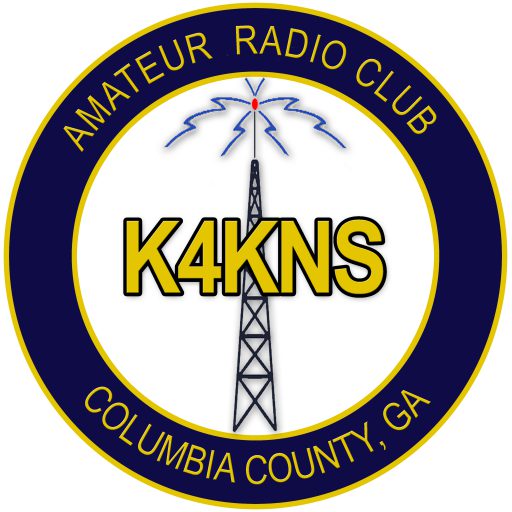Amateur Radio in Disaster Response
Amateur Radio in Disaster Response
When disaster strikes, communication is key. In the chaos and destruction that follows, traditional communication infrastructure is often damaged or destroyed, leaving communities cut off from the outside world. This is where amateur radio operators come in – providing a lifeline in times of crisis.
The Role of Amateur Radio in Disaster Response
Amateur radio operators have been playing a crucial role in disaster response efforts for decades. With their specialized equipment and skills, they are able to establish communication networks that allow emergency responders to coordinate relief efforts, and families to stay in touch with loved ones.
"Amateur radio operators are the unsung heroes of disaster response," says Craig Fugate, former Administrator of the Federal Emergency Management Agency (FEMA). "They provide critical communication services when traditional infrastructure is down, and their efforts save lives."In recent years, amateur radio has played a key role in disaster response efforts around the world. From hurricanes and earthquakes to wildfires and floods, amateur radio operators have been on the ground, providing critical communication services to those in need.

Personal Stories from the Front Lines
For amateur radio operator, John Smith, the experience of working in disaster response is one he will never forget. "I was deployed to Puerto Rico after Hurricane Maria," he recalls. "The devastation was incredible – entire neighborhoods were destroyed, and people were desperate for help. But with my amateur radio equipment, I was able to establish a communication network that allowed us to coordinate relief efforts and get aid to those who needed it most."
Smith's experience is not unique. Amateur radio operators from around the world have shared similar stories of their experiences working in disaster response. From the 2011 Japanese earthquake and tsunami to the 2018 California wildfires, amateur radio has played a critical role in saving lives and providing aid to those in need.
Technical Aspects of Amateur Radio in Disaster Response
So, how does amateur radio work in disaster response? The answer lies in the technology. Amateur radio operators use a variety of equipment and frequencies to establish communication networks. These networks can be used to transmit voice, data, and even video – allowing emergency responders to coordinate relief efforts and families to stay in touch with loved ones.
Some of the key technologies used in amateur radio disaster response include:
- Satellite communications: Amateur radio operators use satellites to transmit signals over long distances, allowing them to establish communication networks that cover entire regions.
- Mesh networking: Amateur radio operators use mesh networking technology to create decentralized communication networks that are resistant to disruption.
- Digital modes: Amateur radio operators use digital modes such as packet radio and PSK31 to transmit data and voice communications over long distances.
Lessons Learned from Recent Events
The use of amateur radio in disaster response has taught us many valuable lessons. One of the most important is the importance of communication in disaster response. "Communication is key in disaster response," says Fugate. "Without it, relief efforts can be severely hampered, and lives can be lost."
Another important lesson is the need for flexibility and adaptability in disaster response. "Disasters are unpredictable," says Smith. "You have to be prepared to adapt to changing circumstances and respond to unexpected challenges."
Some of the key takeaways from recent events include:
-
The importance of having a plan in place for disaster response
-
The need for flexibility and adaptability in disaster response
-
The critical role of communication in disaster response
-
The value of amateur radio in providing critical communication services
-
Key areas for improvement in disaster response include:
- Better coordination between emergency responders and amateur radio operators
- Increased funding for amateur radio equipment and training
- Greater awareness of the role of amateur radio in disaster response
Future Directions for Amateur Radio in Disaster Response
As technology continues to evolve, amateur radio is likely to play an even more critical role in disaster response. Some of the key trends and technologies that are likely to shape the future of amateur radio in disaster response include:
- The use of drones and other unmanned aerial vehicles (UAVs) to establish communication networks
- The integration of artificial intelligence (AI) and machine learning (ML) into amateur radio systems
- The development of new digital modes and protocols for amateur radio communication
These technologies have the potential to revolutionize the way we respond to disasters – allowing us to establish communication networks more quickly and easily, and to provide critical services to those in need.
Finding Calm in the Storm
As amateur radio operators know, staying calm under pressure is crucial in emergency situations. But what about when the crisis has passed, and it's time to unwind? For some, the thrill of uncertainty can be a hard habit to break. That's why some amateur radio enthusiasts have turned to online gaming as a way to channel their love of excitement and unpredictability into a more relaxing pursuit. Take, for example, the thrill of spinning the reels on a game like Bankin' Bacon slot online (Blueprint Gaming), where the rush of adrenaline and the thrill of the unknown can be experienced from the comfort of your own home. Just as amateur radio operators use their skills to navigate the unpredictability of the airwaves, gamers can use their wits to navigate the twists and turns of online games, all while having fun and potentially winning big.
Conclusion
Amateur radio has long played a critical role in disaster response and recovery efforts. From providing critical communication services to coordinating relief efforts, amateur radio operators have saved countless lives and helped to rebuild communities. As technology continues to evolve, amateur radio is likely to play an even more important role in disaster response – providing a lifeline in times of crisis, and helping to keep communities safe.
